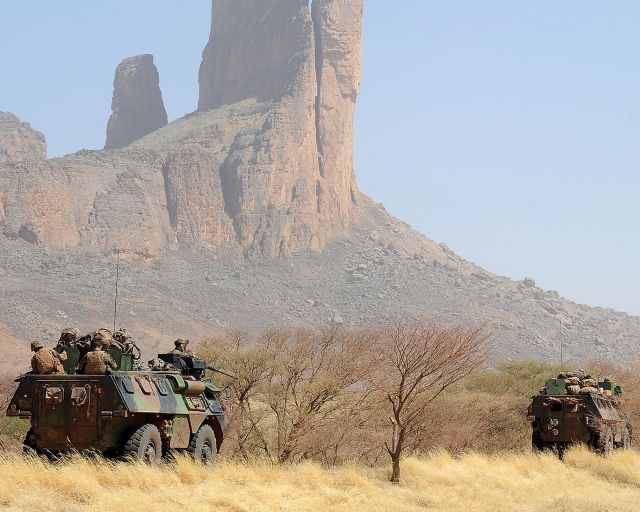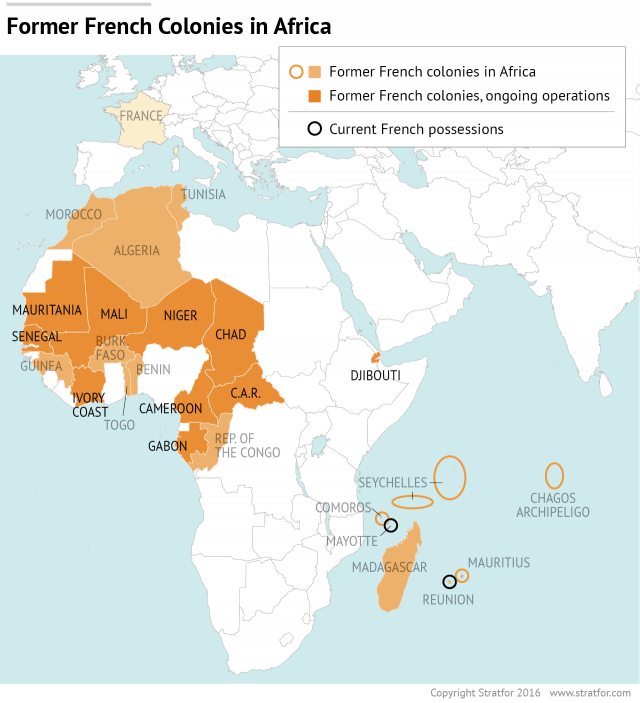
A convoy of French army vehicles heads toward Gao on February 7, 2013, on the road from Gossi after four Malian civilians were killed by a landmine in territory reclaimed from Islamist rebels. (PASCAL GUYOT/AFP/Getty Images)
Summary
For decades, France has kept unusually close ties with its former colonies in Africa, ruthlessly guarding its interests there through cultural and economic power, covert action and dozens of military interventions. Indeed, former French President Francois Mitterrand once pronounced Africa to be France's future in the 21st century. But in the post-Cold War era, France's relationship with Francophone African countries has changed – for better and for worse. Successive French presidents have declared an end to Francafrique, a term denoting the extent of France's neocolonial involvement with its former empire in Africa.
Analysis
Even so, France has intervened in sub-Saharan Africa on five different occasions in the past 10 years, in addition to using quieter intelligence and surveillance operations and countless semipermanent military campaigns. Most recently, France launched Operation Barkhane, an ongoing counterterrorism initiative spanning five countries in Africa's Sahel region and involving more than 3,000 personnel. So it seems that France's military role in Africa will endure.
Lasting Influence
In postcolonial Africa, France strived to consolidate its existing influence in the continent's northern, western and central regions by offering its former colonies there various assurances. Following their independence, 12 countries signed secret national defense agreements with France. The agreements, which have never been made public, allow France to retain a physical presence in the countries in exchange for defending their national sovereignty. France further cemented its clout in its former colonies by maintaining critical economic infrastructure, disbursing development aid and building influential social networks and institutions. For instance, France's treasury backs the CFA franc currency used by 14 African countries. To discourage any external or domestic challenges to its primacy, France orchestrated coups and interventions. The list of Francophone African leaders who tried — and failed — to defy or reduce French authority is long.

Since the end of the Cold War, however, France's sway in Africa has faltered. Rising economic competition from China, the United States and the Gulf Arab states, among others, has plunged France's market share in the continent to historic lows. In addition, France's lagging economy has led to cuts in development aid, institutional funding and military spending. With the passing of a generation of French and Francophone African leaders — such as Ivory Coast's first president, Felix Houphouet-Boigny, who served as a deputy in France's National Assembly — France has become just another international actor vying for African attention. Moreover, in recent years, France's globalizing economic activities and acquisitions have eclipsed its need to sustain such close ties to its former colonies. Nevertheless, France jealously defends its economic and security interests in Africa, undertaking popular counterterrorism and security missions and intervening in conflicts when it sees fit.
rest at ---------->
Where France Would Intervene Next in Africa | Stratfor
